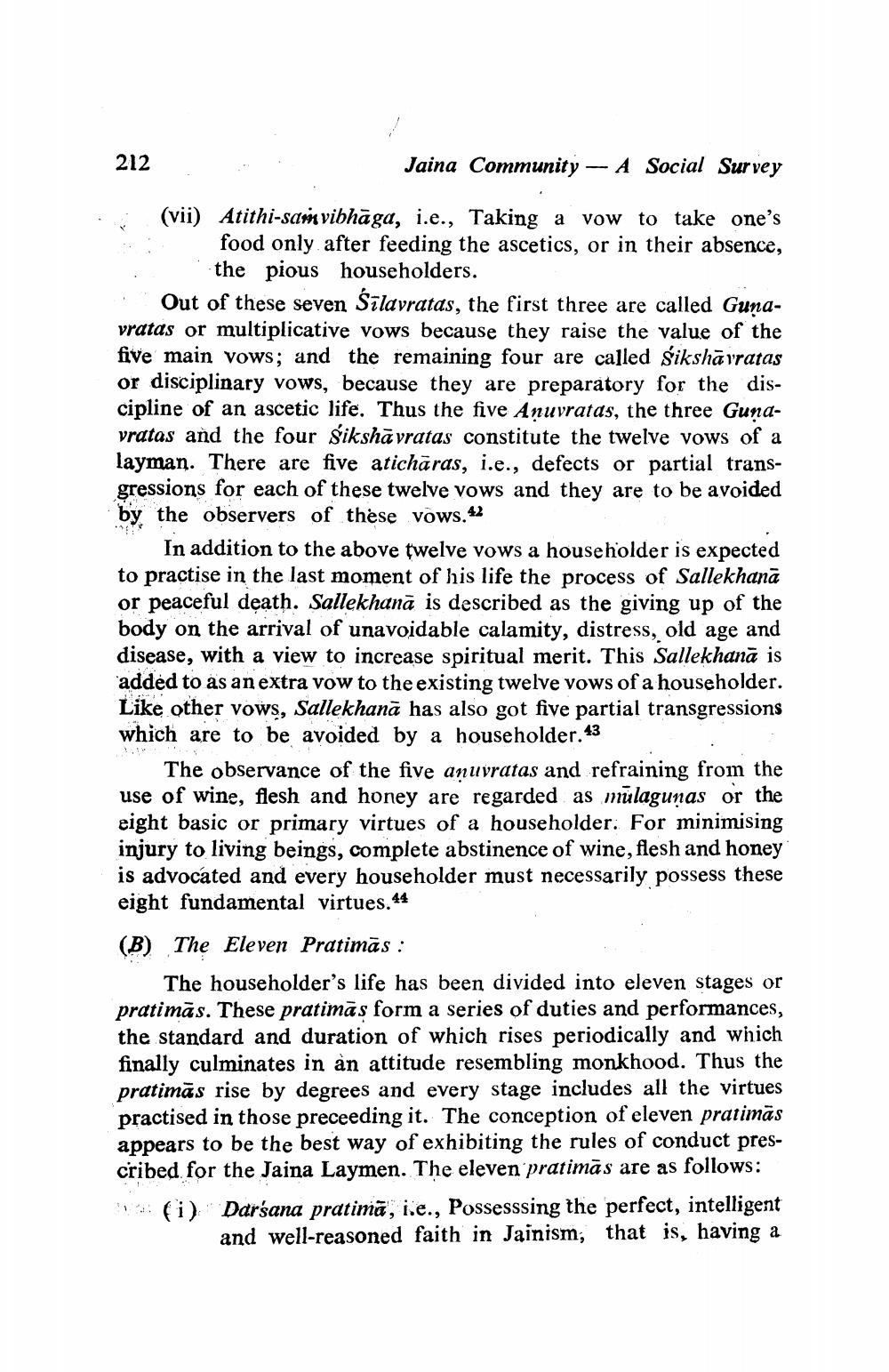________________
212
.
Jaina Community — A Social Survey
(vii) Atithi-sam vibhāga, i.e., Taking a vow to take one's
food only after feeding the ascetics, or in their absence,
the pious householders. : Out of these seven Silavratas, the first three are called Gunavratas or multiplicative Vows because they raise the value of the five main vows; and the remaining four are called sikshāyratas or disciplinary vows, because they are preparatory for the discipline of an ascetic life. Thus the five Anuvratas, the three Gundvratas and the four Sikshā vratas constitute the twelve vows of a layman. There are five atichāras, i.e., defects or partial transgressions for each of these twelve vows and they are to be avoided by, the observers of these vows. 42
In addition to the above twelve vows a householder is expected to practise in the last moment of his life the process of Sallekhana or peaceful death. Sallekhanā is described as the giving up of the body on the arrival of unavoidable calamity, distress, old age and disease, with a view to increase spiritual merit. This Sallekhanā is added to as an extra vow to the existing twelve vows of a householder. Like other vows, Sallekhanā has also got five partial transgressions which are to be avoided by a householder. 43
. The observance of the five anuvratas and refraining from the use of wine, flesh and honey are regarded as mūlagunas or the eight basic or primary virtues of a householder. For minimising injury to living beings, complete abstinence of wine, flesh and honey is advocated and every householder must necessarily possess these eight fundamental virtues.44
(B) The Eleven Pratimās :
The householder's life has been divided into eleven stages or pratimās. These pratimās form a series of duties and performances, the standard and duration of which rises periodically and which finally culminates in an attitude resembling monkhood. Thus the pratimās rise by degrees and every stage includes all the virtues practised in those preceeding it. The conception of eleven pratimas appears to be the best way of exhibiting the rules of conduct prescribed for the Jaina Laymen. The eleven pratimās are as follows: (i) Darśana pratimā, ie., Possesssing the perfect, intelligent
and well-reasoned faith in Jainism, that is, having a




